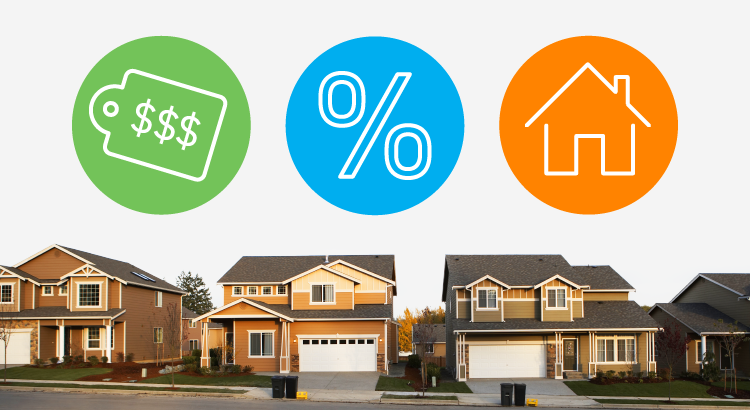Selling your house in Minneapolis, Minnesota, can be an exciting yet nerve-wracking experience, especially when working with a real estate agent. You might find yourself wondering, “How long do most houses take to sell?”
Well, the truth is the duration of a home purchase process can vary based on numerous factors that come into play, such as current market conditions and whether you have a cash buyer.
Factors like location, market demand, home prices, and even the time of year can affect how quickly or slowly your home sells. Open houses, home inspections, mortgage approval processes, and home purchases also contribute to the timeline. It’s essential for sellers to have a realistic understanding of these variables to manage their expectations effectively.
We’ll explore various factors that influence home selling time and offer insights to help home sellers confidently navigate this journey. So let’s get started and unravel the secrets behind how long it takes for home sales in Minneapolis!
Factors Affecting Selling Time
Selling a home can be time-consuming for home sellers, and several factors come into play when determining how long a home sale will take.
Each factor contributes to the overall selling time, from pricing and location to market conditions and property appeal. Implementing effective marketing strategies with the help of a real estate agent can help expedite the process. Let’s delve into these factors in more detail.
Pricing
One of the primary determinants of how long a home sale takes is its price. If a property is overpriced, potential buyers may be deterred from making an offer or even viewing the house in the first place.
On the other hand, if it is priced competitively or below market value, it may attract more attention from potential buyers and lead to quicker offers. A real estate agent can help determine the optimal price for a home’s sale and create a selling timeline.
Location
The location of a house plays a crucial role in its selling time as well as its ability to sell in the current market conditions. In Minneapolis, Minnesota (or simply Minneapolis, MN), certain neighborhoods might have higher demand due to their proximity to schools, parks, shopping centers, or other amenities.
Houses located in desirable areas tend to sell faster than those in less sought-after locations. To ensure a quick sale, it is important to work with an experienced agent who can help determine a competitive price.
Market Conditions
The state of the real estate market greatly influences how quickly houses sell. In a seller’s market, where there are more buyers than available properties, houses tend to sell quickly. Conversely, in a buyer’s market with an oversupply of homes on the market, selling times may be longer.
This can impact the offer and the competitive price that buyers are willing to pay. It is important for sellers to work with a knowledgeable agent who understands the neighborhood appeal and can help navigate these market conditions.
Condition and Appeal
The condition and overall appeal of a property also impact its selling time in the current market conditions. Buyers are often looking for move-in-ready homes that require minimal repairs or renovations.
A well-maintained house with attractive features such as updated kitchens or bathrooms can generate more interest and potentially result in faster sales, which agents can leverage to make a compelling offer to potential buyers.
How to Enhance a Property’s Appeal
- Consider staging the home with tasteful furniture arrangements.
- Improve curb appeal to increase the chances of your home selling quickly. By maintaining landscaping and ensuring an inviting entrance, you can make a great first impression on potential buyers. Consider seeking assistance from a real estate agent who is knowledgeable about the current market conditions to help you make the best offer.
- Address any necessary repairs or cosmetic updates to make the home more marketable in the neighborhood. Consult with a real estate agent to determine the best course of action. These changes can significantly increase the appeal of the house and help it sell faster in a matter of days.
Effective Marketing Strategies
Effective marketing strategies are essential for expediting the selling process and increasing neighborhood appeal. In today’s digital age, online platforms and social media play a significant role in reaching potential buyers interested in buying a home.
Real estate agents often use professional photography, virtual tours, and engaging property descriptions to attract attention and showcase the average number of days a home stays on the market. Hosting open houses can allow interested buyers to view the property firsthand and experience its appeal.
By utilizing these marketing techniques:
List on Popular Real Estate Websites
List the home on popular real estate websites and the local MLS (Multiple Listing Service) to attract potential buyers and take advantage of current market conditions. This will increase neighborhood appeal and ensure that the property is seen by a wide audience.
Working with an experienced agent can help navigate the selling process and maximize the home’s exposure.
Showcase Through Social Media
Leverage social media platforms to showcase the home through appealing visuals and engaging content. This will help attract potential buyers and increase the chances of finding an agent within a few days. On average, using social media can significantly speed up the process of selling a home.
Collaborate with Experienced Agents
Collaborate with an experienced real estate agent who has a strong network and knowledge of the local market to find a home in a neighborhood with great appeal. Their expertise will help you navigate the average number of days that properties stay on the market.
Market Shifts and Days on Market

Market fluctuations significantly impact the average number of days it takes for homes in a neighborhood to sell. Understanding these market shifts is crucial for both home buyers and sellers to navigate the real estate landscape with the help of a knowledgeable agent.
Seller’s Market: Faster Sales, Shorter DOM
In a seller’s market like Minneapolis, where demand outweighs supply, houses tend to sell faster with an average DOM of fewer days. Competition intensifies when there are more buyers than available properties, leading to quicker transactions. Sellers often receive multiple offers and may even find themselves in bidding wars at home.
During these busy days, sellers have the advantage of pricing their homes at a premium. Buyers face increased pressure to act swiftly and make competitive offers to secure their desired property before someone else does. As a result, the average DOM (days on the market) decreases significantly.
Buyer’s Market: Increased Competition, Longer DOM
Conversely, in a buyer’s market where supply exceeds demand, the average number of days a home stays on the market (DOM) may increase as competition decreases. This situation provides buyers with more options and negotiating power while putting sellers under pressure to attract potential buyers.
In Minneapolis’ housing market, during a buyer’s market phase, sellers may need to be patient as their homes stay on the market for longer durations, possibly several days. Buyers can take their time exploring different properties without feeling rushed or pressured into making hasty decisions.
Monitoring Current Market Conditions
Homeowners and real estate agents must closely monitor current market conditions to anticipate selling timeframes. By analyzing relevant data and staying informed about ongoing trends in the local real estate market, they can make informed decisions regarding when to list a property or adjust pricing strategies in order to sell it within a few days.
Market analysis tools provide valuable insights into factors influencing DOM, such as inventory levels, interest rates, and economic indicators like job growth or unemployment rates specific to Minneapolis. Armed with this information, sellers can effectively stage their homes, ensuring they appeal to potential buyers in a competitive market within days.
Cautious Buyers and Longer Listing Periods
In a market like Minneapolis, Minnesota, where potential home buyers have a wide range of options, it’s not uncommon for houses to stay on the market longer than expected. Economic uncertainty or high-interest rates may make home buyers more hesitant to commit to a purchase. They want to ensure they are making the right decision before investing their hard-earned money in a home.
This cautious behavior leads to longer listing periods for home sellers. However, longer listing periods can be beneficial as they allow potential buyers to thoroughly evaluate the home. Buyers take their time to inspect the home, review the listing photos, and consider all available options. Their goal is to choose the best home for their needs.
How can experienced agents help?
Working with experienced home agents can attract serious home buyers sooner. A knowledgeable home agent familiar with the Minneapolis real estate market can help home sellers navigate through this extended home listing period by targeting the right home buyers.
These home agents have connections and resources that enable them to reach out to qualified individuals who are actively looking for homes in the area.
When homeowners decide to list their property, it’s important to understand that patience is key. The process may take longer than anticipated due to cautious buyer behavior and increased inventory in certain markets, such as Minneapolis, MN. However, there are steps sellers can take to increase their chances of attracting potential buyers sooner:
- Enhance your listing: Invest in professional photography services and ensure your home is presented in its best light through appealing listing photos.
- Price competitively: Research the local market and set a realistic price that aligns with current trends and comparable properties.
- Consider staging: Hiring a professional stager can help create an attractive atmosphere that appeals to potential buyers.
- Be flexible with showings. Accommodate potential buyers by allowing convenient showing times.
- Highlight unique features: Emphasize any standout features or upgrades your property may have that set it apart from others on the market.
- Provide thorough disclosures. Be transparent about any known issues or necessary repairs to build trust with potential buyers.
By following these strategies and working closely with an experienced real estate agent, home sellers can increase their chances of attracting serious home buyers sooner, even in a market where caution extends home listing periods. It’s essential to remain patient and proactive throughout the home-selling process while keeping in mind that finding the right home buyer takes time.
Home Condition’s Impact on Selling Time
The condition of a house plays a crucial role in determining how long it takes to sell. Potential buyers are often drawn to well-maintained properties that offer move-in-ready options. In contrast, homes in poor condition may face challenges.
If you’re planning to sell your home in Minneapolis, Minnesota (or anywhere else for that matter), it’s essential to understand the impact of the home condition on selling time.
Well-Maintained Properties Sell Faster
First impressions matter when selling a home. A well-maintained and well-cared-for house is more likely to attract potential buyers quickly. Buyers seek properties they can envision themselves living in without investing time or money into repairs or renovations.
If your home is in good condition, with no major issues or visible signs of wear and tear, you’ll likely attract more interest from prospective buyers. This increased demand can lead to quicker sales and potentially multiple offers, driving up the final sale price.
Necessary Repairs or Renovations
On the other hand, if your home is not in the best shape, it may require repairs or renovations before being listed for sale. Conducting a thorough inspection of your property will help identify any areas that need attention. Addressing these issues upfront can significantly improve your chances of selling faster.
Consider hiring professionals who can assess the condition of your home and provide recommendations for necessary repairs or improvements. From fixing leaky faucets and replacing outdated fixtures to repairing damaged walls or flooring, attending to these details can significantly attract potential buyers.
Staging and Decluttering
In addition to addressing any necessary repairs, staging, and decluttering play a vital role in presenting your home at its best. Staging involves arranging furniture and decor strategically throughout the house to create an inviting and appealing atmosphere.
On the other hand, decluttering involves removing personal items and excess belongings to make a space feel more open and spacious.
Investing time and effort into staging and decluttering can help buyers visualize themselves living in your home. Creating a welcoming environment showcasing the property’s potential increases the likelihood of attracting offers sooner rather than later.
Pricing Right for a Quick Sale
Proper pricing is crucial when selling a home. Overpricing can deter potential home buyers and prolong the selling process, while accurate pricing based on market analysis attracts more interest and increases the chances of a quick home sale.
When determining the price of your home, it’s important to consider various factors such as location, condition, and current market trends in Minneapolis, Minnesota. Setting a competitive price that aligns with fair market value will generate more buyer demand and increase the likelihood of receiving offers.
To ensure you price your home right for a quick sale in Minneapolis, follow these home tips.
1. Conduct a Market Analysis
Before setting an asking price, conduct thorough research on recent home sales in your area. Look at comparable properties in Minneapolis to get an idea of their sale prices. This analysis will give you insights into the local real estate market and help you determine a competitive listing price.
2. Consider Cash Buyers
Cash buyers looking for a speedy sale in Minneapolis, MN, may be interested in your home. Consider pricing your house attractively to attract these buyers, who can provide a fast transaction without relying on mortgage approvals.
3. Consult with Real Estate Professionals
Seek guidance from experienced home real estate agents or home appraisers who have knowledge of the local housing market in Minneapolis. They can provide valuable insights into home pricing strategies that have proven successful in attracting home buyers quickly.
4. Price Competitively
Setting a competitive price for your home is key to generating interest and receiving offers promptly. While it’s tempting to aim high with hopes of negotiating down later, this strategy can backfire by deterring potential buyers who perceive the asking price as unreasonable.
5. Be Open to Negotiation
Even if you set an attractive listing price for your home, be prepared for negotiations during the selling process. Home buyers may still make offers below your asking price, and it’s important to be open to negotiation while ensuring you receive a fair sale price for your home.
6. Act on Cash Offers
If you receive a cash offer for your home that meets your expectations, consider accepting it. Cash offers eliminate the need for mortgage financing, which can significantly expedite the closing process and lead to a quick sale of your home.
By pricing your house right in Minneapolis, considering market analysis, competitive pricing strategies, and being open to negotiation and cash offers, you increase the chances of selling your home quickly. Remember that accurately gauging buyer demand and setting an attractive listing price are key factors in attracting potential buyers as soon as possible.
Urban vs. Rural Areas: Comparing Selling Time in Different Locations
Selling times for houses can vary significantly between urban and rural areas. The real estate market dynamics differ based on location, which ultimately determines how long it takes for most homes to sell. Let’s explore the factors contributing to these variations and delve into the selling timeframes in urban and rural home settings.
Urban Areas
Home sales in urban areas like Minneapolis, Minnesota, tend to happen faster than in rural areas. The primary reason is the higher demand in densely populated cities. With more potential home buyers actively searching for properties, sellers in urban areas often have a larger pool of interested parties. This increased competition among home buyers drives up demand and speeds up the selling process.
Rural Areas
On the other hand, rural areas may experience longer selling times due to limited buyer pools. These regions typically have smaller populations and fewer people actively looking to purchase homes. As a result, sellers in rural areas may need to be patient as they wait for potential buyers who are specifically seeking out properties in those locations.
Location, including both urban and rural areas, plays a significant role in determining selling timeframes for homes.
Each neighborhood within a city or region has its own unique characteristics that can affect how quickly houses sell. Factors such as neighborhood appeal, amenities, schools, and proximity to popular attractions all come into play when attracting potential home buyers.
Regional Variations Can Affect Selling Times
Moreover, regional variations within a home area can also influence selling times. For example, while Minneapolis as a whole might have a relatively fast-paced real estate market due to its bustling nature, specific neighborhoods within Minneapolis might have different selling timeframes depending on their desirability and popularity.
It’s important for both buyers and sellers to understand these differences when navigating the local market. Sellers should be aware of their neighborhood’s strengths and highlight them during the listing process to attract potential buyers more effectively.
Buyers should consider both location and regional variations when searching for their dream home since they can impact the availability and selling time of properties.
Working with Professionals for a Swift Sale
Collaborating with real estate professionals can significantly expedite the sales process when selling a home. These home experts possess the knowledge and experience necessary to navigate the local market efficiently, ensuring that your home sells in a timely manner.
Agents have an Extensive Network
One of the key advantages of working with real estate agents is their extensive network, which attracts potential buyers quickly. Agents have access to a vast pool of interested individuals actively seeking homes in Minneapolis.
By leveraging their connections and marketing strategies, they can effectively promote your property to a wide audience, increasing the chances of finding a buyer within a shorter timeframe.
Real Estate Agents Present Your Home in its Best Light
In addition to their network, real estate professionals excel at presenting your home in its best light, both online and offline. Through professional staging and photography services, they enhance the appeal of your property.
Staging involves arranging furniture and decor aesthetically pleasingly that highlights each room’s key features. This creates an inviting atmosphere that entices potential buyers during viewings or virtual tours.
Moreover, professional photographers capture high-quality images that showcase your home’s unique selling points. These visually appealing photographs are then utilized in online listings and marketing materials.
By highlighting the most attractive aspects of your property through stunning visuals, real estate agents can generate more interest from prospective buyers.
Negotiations
Another crucial aspect where real estate professionals shine is home negotiations. Their expertise enables them to navigate complex home negotiations on your behalf, facilitating faster home transactions.
Skilled home negotiators understand how to position your home interests effectively while also considering market conditions and buyer demands. They work diligently to secure favorable home terms for you throughout the home negotiation process.
Having a knowledgeable home agent by your side can be invaluable. Home real estate agents guide you through every step of the home selling process, ensuring that all legal requirements for selling a home are met accurately and efficiently.
From preparing necessary home documents to reviewing home offers and counteroffers, they handle the home paperwork with meticulous attention to detail, saving you time and potential headaches.
Agents Collaborate with Mortgage Lenders
Furthermore, real estate professionals often collaborate closely with mortgage lenders to streamline the financing process for potential home buyers. This partnership makes it easier for them to secure a loan and attract more qualified buyers who are ready and able to make an offer promptly.
By working with a local realtor who has established connections with reputable lenders in Minneapolis, you can increase your chances of finding a homebuyer for your property.
Key Takeaways on Selling Time
Selling a home is an exciting yet complex process, and one question that often comes to mind is: “How long do most houses take to sell?” The answer to this query isn’t straightforward, as multiple factors influence the timeline.
Market Conditions and Location Dynamics
Market conditions play a significant role in determining how quickly a house sells. In bustling cities like Minneapolis, Minnesota (or Minneapolis, MN), where demand is high, houses sell faster than in less populated areas.
Understanding the dynamics of your location can help manage expectations regarding selling timelines.
Property Conditions
Another crucial factor is the condition of your property. Well-maintained and aesthetically appealing homes have higher chances of attracting potential buyers quickly. On the other hand, homes requiring extensive repairs or renovations may take longer to sell unless priced accordingly.
Price
Pricing your home appropriately is vital for a speedy sale. Setting an unrealistic price could deter potential buyers while pricing it too low might lead to financial losses. Collaborating with real estate professionals who possess market knowledge and expertise can help you strike the right balance and attract interested buyers within a reasonable timeframe.
Strategies for Speeding Up Sales
To expedite the sales process further, consider implementing these effective strategies:
Utilize Online Resources
Leverage various online platforms, such as real estate websites and social media channels, to promote your listing. These platforms allow you to reach a broader audience and increase visibility for your property.
Enhance Accessibility with Lockboxes
Installing lockboxes on your property allows potential buyers or their agents easy access for viewings even when you’re not available. This convenience can speed up the showing process and potentially lead to quicker offers.
Seek Professional Assistance
Real estate agents have extensive networks and experience in the industry. Collaborating with an agent can help you navigate the complexities of selling a house, from pricing it correctly to negotiating offers and managing paperwork.
Be Aware of Key Fees
Selling a house involves various costs, such as agent commissions, closing costs, and potential repairs or staging expenses. Understanding these fees upfront can help you plan your finances accordingly and avoid any surprises along the way.
Managing Expectations
While implementing strategies can speed things up, it is essential to manage your expectations realistically. The best time to sell a house varies depending on market conditions and other external factors. It’s crucial to stay informed about local trends and consult with professionals who can guide you through the process.
Conclusion: How Long Do Most Houses Take to Sell?
The time it takes for a house to sell can vary depending on several factors. Factors such as market shifts, cautious buyers, home conditions, pricing strategy, location, and working with professionals all play a role in determining how long a house will stay on the market.
To summarize, understanding these factors is essential when considering how long most houses take to sell:
- Market shifts affect days on the market.
- Cautious buyers may prolong listing periods.
- The home condition impacts selling time.
- Pricing right attracts quicker offers.
- Urban areas generally have shorter selling times than rural areas.
- Professionals can assist in achieving a swift sale.
In conclusion, when selling your house, it’s crucial to be aware of these factors and work towards optimizing each aspect to minimize the time your property spends on the market. By taking these considerations into account, you can increase your chances of a faster sale and move forward with your future plans.








